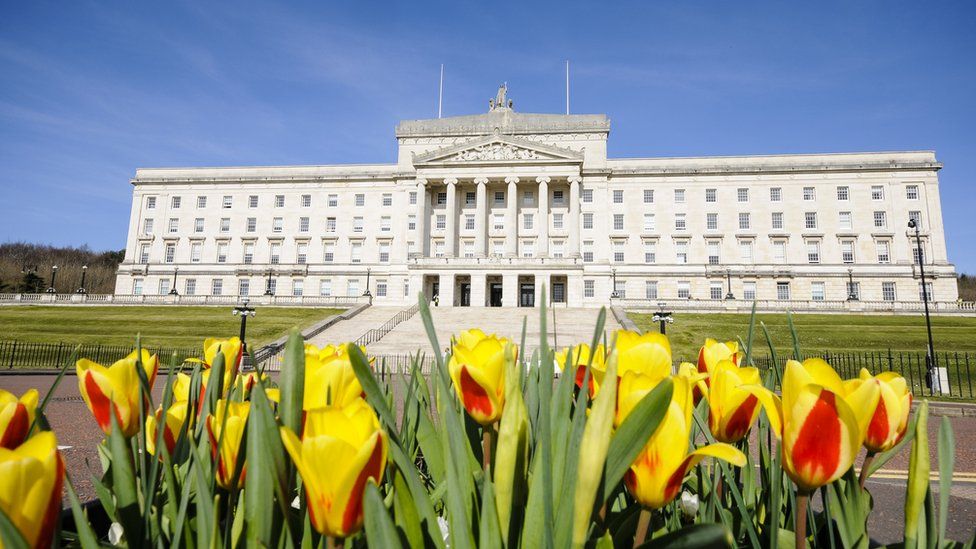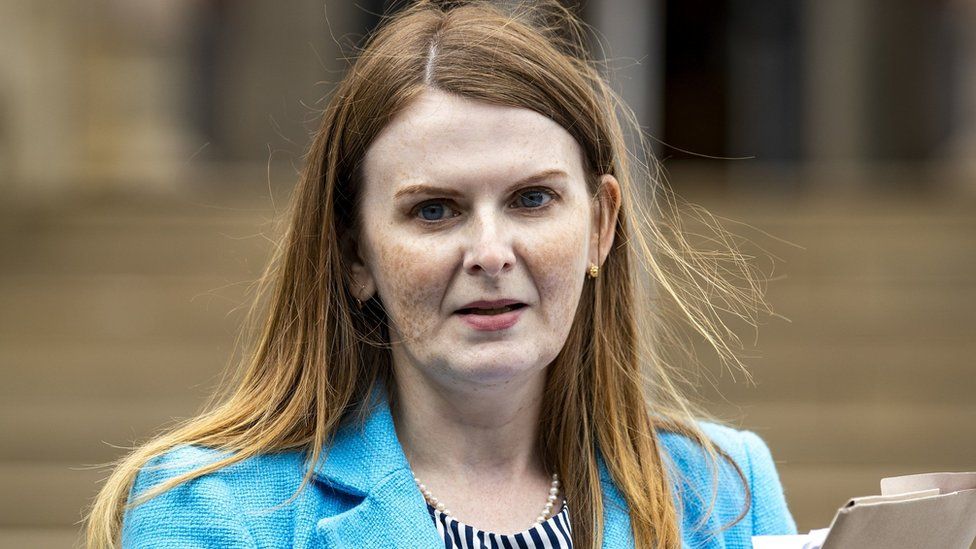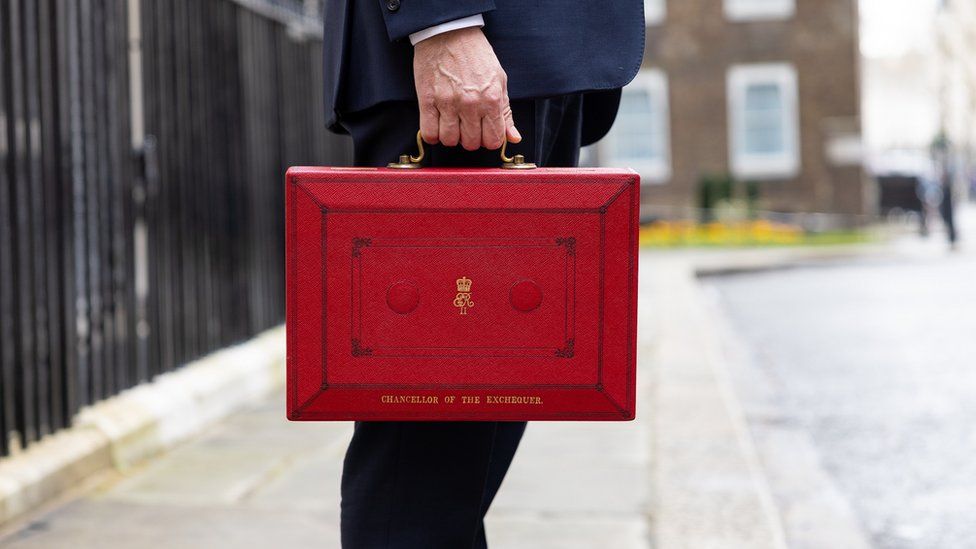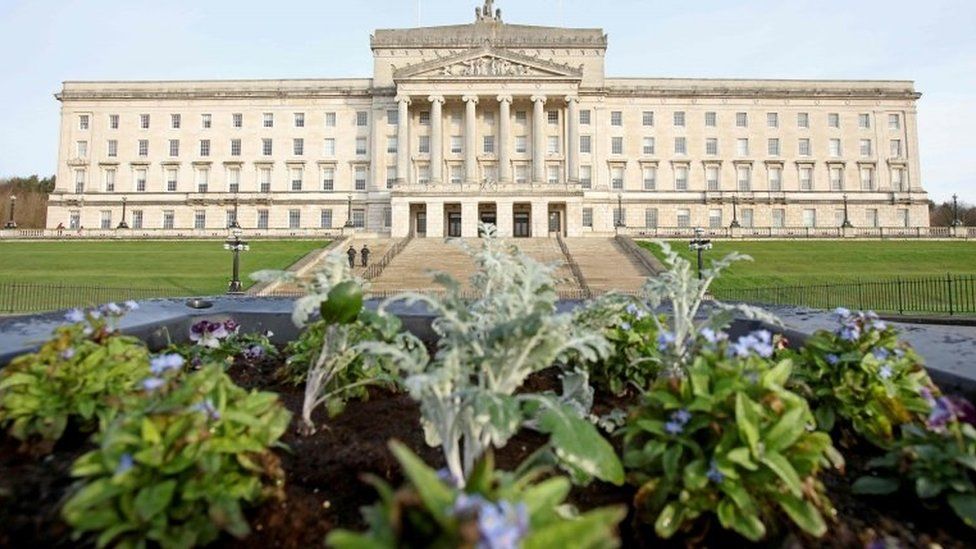-
Published44 minutes ago
 Image source, Getty Images
Image source, Getty ImagesStormont ministers are agreed – after this week’s budget none of them have enough money.
“No department has received what they need in order to be able to even maintain the services they already had,” Justice Minister Naomi Long said.
The options for raising more funds are limited.
Stormont has only the most minimal powers over borrowing and taxation and ministers are reluctant to use the revenue raising powers they do possess.
For example the regional rate, a property tax collected by Stormont, was only increased by the rate of inflation this year.
The only option left in the short-term is hoping that the chancellor increases overall UK public spending.
In the medium term, ministers are pinning their hopes on a reform of Northern Ireland’s fiscal framework.
What is the fiscal framework?
It is the overall range of Stormont’s financial powers, including taxation and borrowing.
Stormont ministers would like to have enhanced borrowing powers and greater flexibility over how they smooth spending from one financial year to the next.
However, the major change being sought is the further development of a “needs-based” funding approach.
In a broader sense the framework also includes consideration of how money is spent, including possible reform of public services.
What is needs-based funding?
Needs-based funding recognises that it costs more to deliver public services in Northern Ireland to the same standard as those provided in England.
Independent experts on the Northern Ireland Fiscal Council have estimated that Northern Ireland needs £124 per head for every £100 per head spent in England.
Northern Ireland is estimated to have now fallen below that level to about £120 per head.
Stormont’s major source of funds is the “block grant” it receives from the Treasury every year.
The annual increase to the block grant is worked out using the population-based Barnett formula.
The government has said it will now top up those annual increases by 24% as a way to get back to the assessed level of need.
However, the Fiscal Council has warned that those top-ups will not bring Northern Ireland back to its level of need until about 2035.
Speaking to the BBC this week Finance Minister Caomihe Archibald said the executive’s main request is for that level to be reached much sooner.

“The really important bit for me is ensuring that is baselined into our budget from the start of the next spending review,” she said.
In February the minister met the chief secretary to the Treasury to begin talks on this issue.
Revenue raising
The financial package which helped restore devolution included a commitment from the executive that it would raise additional revenue of £113m over the next two years.
That is a modest amount, equivalent to less than 1% of the executive’s annual budget for day-to-day services.
Ministers have ruled out introducing water charges, which would be the largest potential source of additional revenues.
This week the finance minister again declined to rule out ending some rates reliefs which would now appear to be most likely way to raise more money.
A UK government source said the executive needs to a show a willingness to raise revenues as part of fiscal framework negotiations.
Public sector transformation
Spending available funds more effectively and efficiently is another part of the fiscal discussion.
Successive executives have ducked transformation – most obviously a series of reports on health service reform have been largely unimplemented.
The deal which restored devolution requires the establishment of a Public Service Transformation Board which will help direct £235m of ringfenced funding.
Ms Archibald has described transformation as “key to living within the financial envelope that we will have”.
This week she said there was “an absolute willingness” from all executive parties to deliver on transformation.
Tax devolution
Corporation tax has dominated the discussions around tax devolution in Northern Ireland.
There has been a long campaign by business groups for Stormont to take control of that tax and cut it to 12.5% to match the rate in the Republic of Ireland.
A law has been passed effectively giving the assembly the power to do that, albeit requiring the approval of the UK government.
The power has never been used over concerns about its impact on the block grant.
However there is the potential for wider tax devolution.
An independent fiscal commission has suggested that Stormont could take control of income tax powers, in a similar way to the Scottish government.
The minister hasn’t ruled anything in or out other than saying she intends to bring a paper to the executive “on general fiscal devolution”, and it will then be for the executive to take a position on that.
-
-
Published15 January

-
-
-
Published26 February
-
-
-
Published2 March

-
-
-
Published13 February

-

